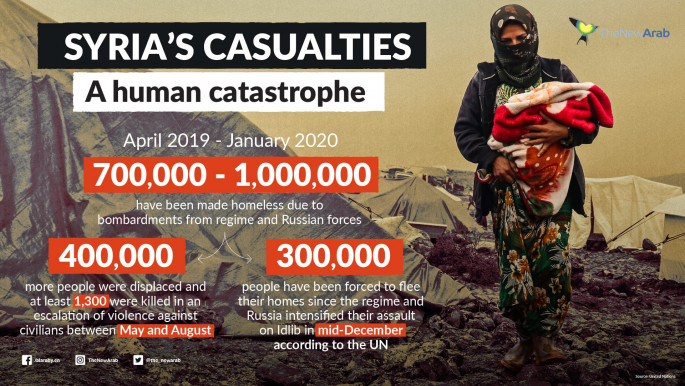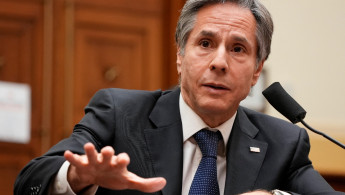US to finally push for Syria aid at UN
For his upcoming UN meeting, Secretary of State Antony Blinken "will reinforce the United States' support for the Syrian people, for a nationwide ceasefire, and for unhindered access that will allow humanitarian assistance to reach vulnerable communities throughout the country", according to a statement from his office released on Friday.
This comes days after the 10-year anniversary of the Syria uprising, where the ensuing conflict has left more than 500,000 dead, nearly 6.5 million internally displaced and more than six million Syrian refugees dispersed throughout the world.
The unemployment rate in Syria is around 50% and approximately 80% of Syrians currently live in poverty.
"I think it's important to remind the public that the Syrian refugee crisis is the worst refugee crisis in the world," Ahmad Firas Khalid, senior research and learning consultant, epidemic prevention and control at the Canadian Red Cross, told The New Arab.
"This will require a lot of behind-the-scenes negotiations. It will require a lot of international diplomacy – something that didn’t happen under the Trump administration," Khalid said, referring to the difficulty in aid access to those outside of regime-controlled areas.
Read also: Thousands rally in Syria's Idlib to mark 10 years since uprising
According to the West, deliveries of aid are not working partly because of bureaucracy imposed by Damascus and its desire to ensure that no aid reaches armed groups.
In July, thanks to its UN Security Council veto, Russia imposed a drastic reduction to just one in the number of border crossings authorised without Damascus's approval.
The authorisation expires in July, and Russia has already hinted that it will not allow its extension to the frustration of the West that say the crossing is essential for an international aid.
"I do not think the Russians are going to budge on this until Idlib effectively is returned to Syrian government control," he said, adding that the only he could see the US making some headway would be to waive certain sanctions in exchange for opening up some border crossings.
"The hope is that it will happen soon," Kahlid added. If it does, "it will have to rely on community organizations on the ground. The grassroots organizations know what's happening on ground."
Brooke Anderson is The New Arab's correspondent in Washington D.C., covering US and international politics, business and culture.
Follow us on Facebook, Twitter and Instagram to stay connected





 Follow the Middle East's top stories in English at The New Arab on Google News
Follow the Middle East's top stories in English at The New Arab on Google News
![Israeli forces ordered bombed Gaza's Jabalia, ordering residents to leave [Getty]](/sites/default/files/styles/image_330x185/public/2176418030.jpeg?h=a5f2f23a&itok=_YGZaP1z)

